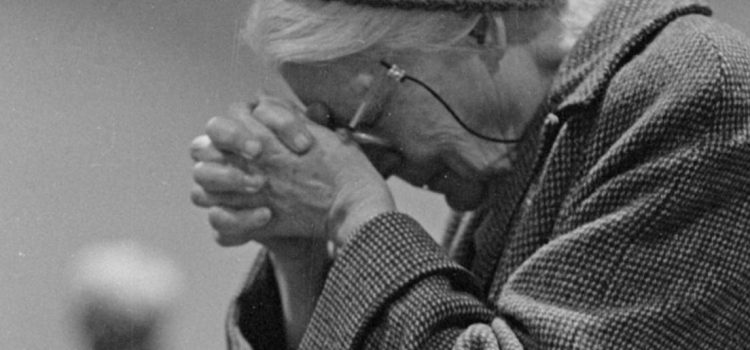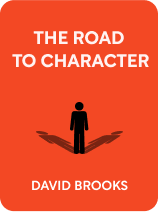

This article is an excerpt from the Shortform book guide to "The Road to Character" by David Brooks. Shortform has the world's best summaries and analyses of books you should be reading.
Like this article? Sign up for a free trial here .
How did Dorothy Day go from a party girl to the founder of the Catholic Worker movement? Did she regret the actions of her earlier years?
Dorothy day’s biography is one of self-reflection and growth. In her younger years, she was lost for direction and didn’t know her purpose in life. But after the birth of her daughter and meeting a political activist, Day decided to dedicate her life to Catholicism and helping the poor.
Keep reading to learn more about the life of Dorothy Day.
The Life of Dorothy Day
Dorothy Day, an American journalist-turned-activist who founded the Catholic Worker movement and the newspaper The Catholic Worker, advocated for the poor and the homeless during the Depression. She demonstrated the importance of:
- Self-reflection and self-criticism—the ability to recognize and admit to your own flaws
- Understanding that suffering has value—there is inherent beauty in the struggle for higher moral character
- Accepting the Christian concept of grace—realizing that no matter how much struggle you face and no matter how much you sin, God will eventually redeem you
- Finding your vocation and purpose in life, then fully devoting yourself to it
Here is a brief overview of Dorothy Day’s biography:
Day’s Character Development
From early childhood, Day had a deep sense of God’s presence in the world. She was eight years old and alone in San Francisco during the city’s epic 1906 earthquake. She experienced the horrifying shaking as the work of an almighty, impersonal God. She also saw how people pulled together in the quake’s aftermath—neighbors helping neighbors. That memory—of people coming together during times of crisis—influenced her entire life.
Despite realizing God’s presence, for most of her first 25 years Day kept herself at arm’s length from organized religion. Instead, she developed a strong interest in the social writings of early 20th century progressives and revolutionaries. She joined the American Socialist Party during college, and soon got a job as a cub reporter for a New York socialist newspaper. In her twenties, she wrote stories about poor working-class people while she lived the life of a free-spirited Bohemian—a hippie before the time of hippies. She developed a fondness for alcohol and was always happy to be someone’s drinking partner. She fell in love with brooding, difficult men. She lived through a failed marriage and an abortion.
The young Day drifted through her “party girl” years, searching for something meaningful to ground her. Two major turning points helped to provide the heroic life purpose she needed—and also pushed her toward Catholicism. The first was the birth of her daughter, Tamar. Day saw the miracle of childbirth as an expression of something bigger than herself—an obvious example of God’s love. Day wanted to give Tamar a religious foundation, believing that this would help her child to live a better life than Day had lived. In order to have Tamar baptized, Day had to learn the catechism, which led to her growing interest in Catholicism. Eventually, Day herself was also baptized.
The second major turning point occurred in 1932 when she met Peter Maurin, a French peasant, political radical, and street philosopher who led Day to her full immersion in Catholicism. Maurin introduced her to an entirely new set of Roman Catholic philanthropic teachings—particularly the idea that performing works of mercy requires self-sacrifice. The pair co-founded the Catholic Worker movement. They opened up more than 100 Catholic “houses of hospitality” to aid the poor, started numerous agricultural communes where farmers and scholars could work together and live off the land, and published The Catholic Worker newspaper for more than 40 years.
Day’s Struggles
Day’s early years were filled with many “anti-Catholic” life experiences, like drinking to excess, having a child out of wedlock, and choosing to have an abortion. She later wrote that her alcoholism and depression during this period were related to the fact that she was unable to be satisfied with everyday pleasures. She required a transcendent purpose to give shape to her life.
As Day matured, she did not regret her youthful party-girl experiences or feel guilty about them. Instead, she fully embraced God’s grace and recognized that her mistakes were critical to her spiritual resolve. She saw how understanding and forgiving her imperfections would help her be generous with others. She believed that her personal struggles—and others’ personal struggles—could be used as a force for good.
Although Day’s inner conflict found a sense of calm in the Catholic Worker movement, her life was still filled with external conflict. Both the Catholic Worker movement and Day herself were subject to much criticism. A fervent pacifist, Day opposed the Spanish Civil War and also World War II, a view which many other Catholics disagreed with. Her movement lost many supporters during the war years as her commitment to nonviolence and pacifism increased. After Hiroshima, Day was jailed three times for protesting against the atomic bomb.
But even as she aged, Day remained stalwart in her beliefs, and she continued to advocate for causes that mattered to her. In the 1960s, she repeatedly spoke out against the Vietnam War, and in 1973, at age 76, she was arrested for protesting alongside Cesar Chavez against the Teamsters Union.
Lessons From Day’s Life
- Embrace suffering. Through her own mistakes and sadness, Day learned to embrace a life centered around caring for others. This gave her life an anchor that she did not have during her early years and ultimately filled her life with joyful purpose.
- Accept God’s grace and forgiveness. Deep devotion to God will guide you and strengthen your character.
- Devoting yourself to a cause can give meaning and purpose to your life.

———End of Preview———
Like what you just read? Read the rest of the world's best book summary and analysis of David Brooks's "The Road to Character" at Shortform .
Here's what you'll find in our full The Road to Character summary :
- How the world has become "me-focused" rather than "we"
- An analysis of eight historical figures who selflessly contributed to the greater good
- A 15-point plan to help you live a more virtuous and happy life






